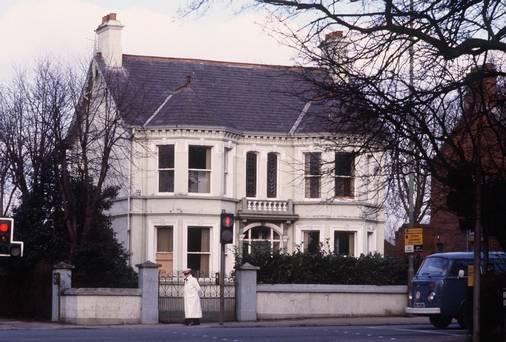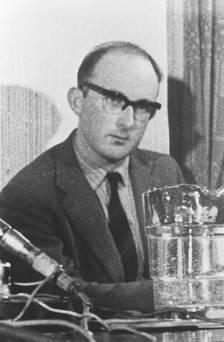|
Kincora: The man who wants to lift the lid off one of the darkest secrets in Ulster's past
Belfast Telegraph
January 31, 2015
http://www.belfasttelegraph.co.uk/life/kincora-the-man-who-wants-to-lift-the-lid-off-one-of-the-darkest-secrets-in-ulsters-past-30951854.html
 |
| Kincora Boys Home in Belfast |
 |
| Colin Wallace insists he has tried to expose the cover-up of the sex abuse scandal at Kincora |
Kincora: the name is a byword for the most notorious child sex scandal in Northern Ireland history. Whistleblower Colin Wallace has vowed to reveal all to the Historical and Institutional Abuse Inquiry. But is the former Army officer a Deep Throat or a Walter Mitty? Liam Clarke reports
You know, if my parents were told all this was going on, they would never have believed it, Colin Wallace told me. What the 71-year-old former Ballymena Academy pupil is referring to is a half-world, lurking just below the surface of official Ulster life, with its rules and its proprieties.
This was a place where an intelligence agency might turn a blind eye to child abuse to get information from the perpetrators, where the government might launch black propaganda assaults against politicians and would plot the downfall of Ian Paisley as readily as Gerry Adams.
Wallace himself wouldn't have believed it initially, but he has spent the past 40 years trying to lift the lid on the intelligence scandals which he says swept through Northern Ireland in the early 1970s. He has also spent it trying to clear his name after being wrongfully dismissed from his job in the Ministry of Defence and then wrongfully convicted of manslaughter.
The former officer is now negotiating to be allowed to tell all - and recover official documents from the 1970s to prove what he says - at the Historical and Institutional Abuse Inquiry, conducted by Anthony Hart QC.
Sir Anthony hopes to reach the Kincora Boys' Home sex abuse scandal, over which Wallace alleges a long-running cover-up, by the end of the year.
But is he a fantasist, a Walter Mitty character, as some former police and intelligence officers claim?
Colin John Wallace comes from a traditional unionist and service family from Randalstown in Co Antrim. The son of a member of the RAF who died of his war wounds in 1946, Mr Wallace himself was an "Army-barmy" teenager.
He served in the Territorial Army, the 'B' Specials and the Irish Guards and was seconded to the New Zealand SAS.
He was commissioned into the UDR (the locally recruited regiment of the British Army) with the rank of captain.
Wallace was trained as a psychological warfare expert and then appointed to the job of Army Press officer. That was his overt role, but he also worked for the secretive Information Policy Unit, which attempted to control politicians and paramilitaries by the use of propaganda.
Peter Broderick, head of Army information services in 1973, told the journalist Paul Foot how Wallace had "taken no leave for six years and worked 80 hours a week. He was relied on because he had a knowledge of the Irish situation which was unique in headquarters and surpassed that even of most of the intelligence branch.
advertisement
"As time progressed, he was not only the main briefer for the Press, but also the advisor on Irish matters to the whole headquarters and, because of his personal talents, contributed much creative thought to the information policy unit.
"In order to do his job, he had constant and free access to information of the highest classification and extreme sensitivity."
Wallace still has sheafs of documents, which have been forensically shown to originate from the period. A large number of them give details of Operation Clockwork Orange, which was designed to manipulate the unionist community. The Rev Ian Paisley, for instance, was wrongly accused of having had homosexual relationships in a Bible school and of siphoning money off to Canada where, it was alleged, he intended to retire, leaving his followers to their fate after pushing Northern Ireland over the brink.
Wallace pumped out a steady stream of such stories to the media, often not knowing for sure if they were true or false.
One told how new types of IRA incendiary bombs could be set off by the static from nylon knickers in an effort to make republican women too frightened to carry them into the city centre concealed under their clothes. There were also attempts to split the UVF, accusing it of communist leanings.
It quickly became clear that one man, William McGrath, the house-father of Kincora, who was heavily involved in the sexual abuse of young boys, was an intelligence source for MI5.
At the time, MI5 was taking over from MI6 (which deals with spying abroad) as the lead intelligence agency in the Province and Ian Cameron was moved in from Berlin to take charge.
He warned Wallace and a number of other Army officers and intelligence sources off pursuing the matter.
As well as being a paedophile, McGrath headed Tara, a shadowy loyalist paramilitary group, which provided a valuable way into both the loyalist underworld and unionist politics.
He was also a lay preacher, whose known career as an abuser had started in the 1940s in Faith House, where he led prayer meetings and Bible classes.
Another loyalist abusing underage boys was John McKeague, the head of the illegal Red Hand Commandos, who also worked as a military intelligence agent.
Two other staff at Kincora, Joe Mains and Raymond Semple, were also involved in the abuse, but were not as brutal as McGrath, who liked to rape boys in the bathroom, or over the banisters.
"The Army broadly wanted it exposed, but it wasn't their main business. So efforts were made to alert the police and I was told to leak some details to the Press," Wallace said.
He did so, accusing McGrath of "homosexual activity" and giving his phone number. "In the first memo I gave to the Press, in 1973, there is a reference to Dr Maurice Fraser, who wrote a little piece about children in conflict. It is handwritten at the bottom.
"He was a psychiatrist in the Royal Victoria Hospital and he was eventually done for paedophile activities and he became one of the founder members of Paedophile Information Exchange. He was struck off the medical register.
"He was convicted in Canada, first of all, and then he was done here with a sort of sailing activity that was run with a group of paedophiles."
Wallace added: "I can't help thinking that, if that had been acted upon, five years of sex abuse would have been avoided at Kincora, and Frazer, who was an internationally active figure for years more, would have been stopped in his tracks."
Kincora did hit the newspapers in 1980, when Gerry Fitt, then the independent socialist MP for West Belfast, raised the issue in Westminster.
A police investigation quickly ensued and, as a result McGrath, Semple and Mains were all jailed and the home closed down.
Two of the officers who conducted that investigation are among Wallace's strongest critics, though they are urging him to tell all he knows and promising to help any lawful inquiry into Kincora themselves. They have asked to be given pseudonyms, so we will call them "Smith" and "Jones".
By the time officer "Jones" interviewed him, Wallace was in prison for the manslaughter of Jonathan Lewis, an antique dealer, with whose wife he was allegedly having an affair.
He had also been forced out of his job for leaking material to Robert Fisk, then The Times correspondent in Northern Ireland. All this was later overturned and he was compensated.
In 1990, the Government admitted to the Commons that the House had been "inadvertently misled". Archie Hamilton, then armed forces minister, confirmed that Wallace had, indeed, been given "responsibilities for providing unattributable covert briefings to the Press".
This meant that he had done nothing wrong in handing over classified documents to Fisk - just as he was acquitted of killing Jonathan Lewis.
Interviewing him in prison, though, the two RUC detectives didn't know he would be exonerated years later. They found him uncooperative and evasive during a three-hour interview. They felt he was so pernickety in seeking assurances that he wouldn't be prosecuted that he probably didn't know much in the first place.
"I put it very strongly to Wallace that he was a Walter Mitty; he knew nothing about Kincora. He could talk round things; he could say that Paisley was involved and other people were involved. But prove it? He would say, 'I'll tell you if you can get me out of this prison.' I then terminated the interview," officer Jones says.
Before this, the officers had brought the prisoner an assurance that he wouldn't be prosecuted from first the Ministry of Defence and then the Prime Minister, Margaret Thatcher.
"The assurance from Mrs Thatcher is reproduced in my autobiography.
"It said that I could give information to the RUC that was directly relevant to abuse at Kincora. They also said I could not give evidence that was not directly related to that," Wallace stated.
He added: "My solicitor was with me on every occasion I met the RUC and he said very, very clearly that I had no direct knowledge of sexual abuses, in the sense that I hadn't witnessed it happening.
"My information was based on intelligence.
"My argument is that the security forces knew what was going on, but did not act to stop it and that, to some extent, the Army tried to do something about it."
Over the years, information that has emerged has generally tended to fit in with Wallace's account. For instance, Brian Gemmell, a captain in military intelligence, reported McGrath to Ian Cameron and said he was warned off.
When James Miller, an agent within first Tara and then the UDA, reported it to his civilian handlers, he was promptly told to forget about it and leave Tara.
Roy Garland, second-in-command of Tara and a member of the UDR at the time, had also tried to raise the issue with the police and with Gemmell.
"The big question is who knew what and when. I am still in contact with the Hart inquiry and I hope, in the end, the full facts can be brought to light," Wallace said.
Home’s shadow has lingered for decades...
The Kincora Boys’ Home scandal first came to the public’s attention in 1980, after a report in the Irish Independent claimed that, in spite of allegations of abuse against its residents first surfacing in 1977, no prosecutions had taken place.
In April of that year, however, three members of staff from the Newtownards Road-based home — William McGrath, Raymond Semple and Joseph Mains — were charged with offences relating to the sexual abuse of children in their care over a number of years.
Mains, who had been the warden, was later sentenced to six years’ imprisonment, with Semple, an assistant warden, receiving a five-year sentence.
McGrath was jailed for four years.
It has since been claimed that high-profile members of society — including a Tory MP — were connected to the scandal.
It has also been alleged that UK security services also knew about the crimes, but did not act to stop them.
The home — which had been run under the authority of the then-Stormont Department of Health and Social Services — was opened in 1958 and had housed hundreds of vulnerable teenage boys and young men over its lifetime.
It finally closed its doors in 1980.
|

